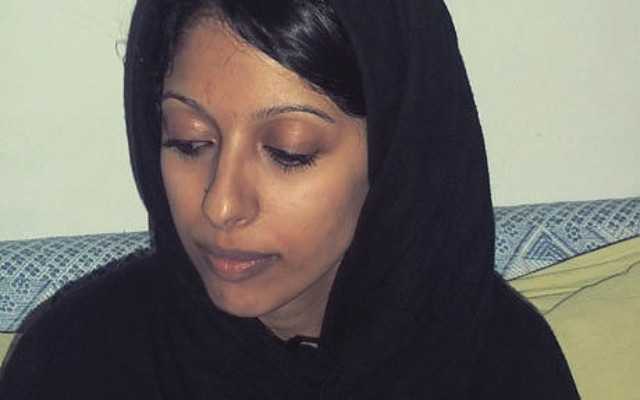On 23 May 2016, a reporter raised the case of Zainab al-Khawaja and her infant son during the U.S. Department of State’s Daily Press Briefing. “She’s sick, and the family can’t get the one-year-old out of prison. Is this an issue, or is this okay with you guys?” asked one reporter. In response, the State Department spokesperson said they would try to get an update on the situation.
Bahraini forces arrested Zainab on 14 March 2016 after she had exhausted her appeals process. Charges against Zainab violate her freedom of expression, as some relate to an incident where she tore apart a picture of the King of Bahrain. During the arrest, Bahraini forces also took in Zainab’s infant son. Her son, Abdulhadi, is 17 months old and has now spent over two months of his life in jail.
The reporter who pushed for an answer regarding the status of Zainab’s release further detailed the circumstances surrounding her situation. During US Secretary of State John Kerry’s first ever visit to Bahrain in April 2016, Bahraini Foreign Minister Sheikh Khalid bin Ahmed al-Khalifa promised that his government would release Zainab and her child from prison. “You got a promise, and you hailed him… for this,” the reporter said, “so it’s a little silly at some point.”
Indeed, it is a “little silly.” Today marks the 51st day since Sheikh Khalid promised to release Zainab and her son. Last week, Zainab’s family reported that she became ill and was unable to care for her son. Zainab asked police to allow her son out of prison and into the care of family members while she was ill. Police denied her request. The family then traveled to the prison and asked police to allow Abdulhadi out so they could care for him while Zainab is sick. Again, police denied their request. Zainab’s mother, Khadija al-Mousawi, concluded that her grandson is no longer just accompanying Zainab, but is also a prisoner himself.
Abdulhadi’s health has also suffered over the course of his detention. His family reports that the child has had numerous infections in his ears, throat, and chest. The child has reportedly been rushed to the hospital due to high fever. Doctors told Zainab not to give the child any water from the prison that is not bottled, indicating the sanitation of the facility is poor. The family is worried about Abdulhadi’s health, saying that he “is in danger inside” the prison.
On 27 May, the Bahraini Ombudsman issued a statement denying that officials refused to allow Abdulhadi out of jail. They stated that Abdulhadi has been handed over to his outside family members a number of times since his imprisonment. However, Bahraini forces only allow Abdulhadi out during his scheduled weekly visits. Zainab’s illness occurred unexpectedly and did not fall during these prescheduled visits. Thus, Bahraini authorities refused to allow the infant out of prison and into the care of his family at that time.
The State Department has commented on Zainab’s case a number of other times. Two weeks after Sheikh Khalid’s promise of release, the State Department announced they were “watching the case closely.” On 29 April, the State Department said they are “urging” Bahraini officials to follow through on their promise to release her. “Have you actually urged them, or are you just saying this now?” asked a reporter. The State Department spokesperson replied that they could “only imagine” the US has been in contact with Bahrain. In a later statement on 12 May, the State Department again said they are “closely monitoring” Zainab’s case. And just yesterday on 27 May, the State Department said they urge Bahraini authorities to follow through on their promise. However, the State Department said they have no updates on her situation.
It has been more than seven weeks since Bahrain promised to release Zainab and baby Abdulhadi. Following several ambiguous statements over the course of almost two months, it is becoming unclear if the US State Department has prioritized securing the release of Zainab and her son or if they are simply placating the public while allowing the Government of Bahrain to operate with impunity.
Erin Sigmon is an Advocacy Fellow for ADHRB.





